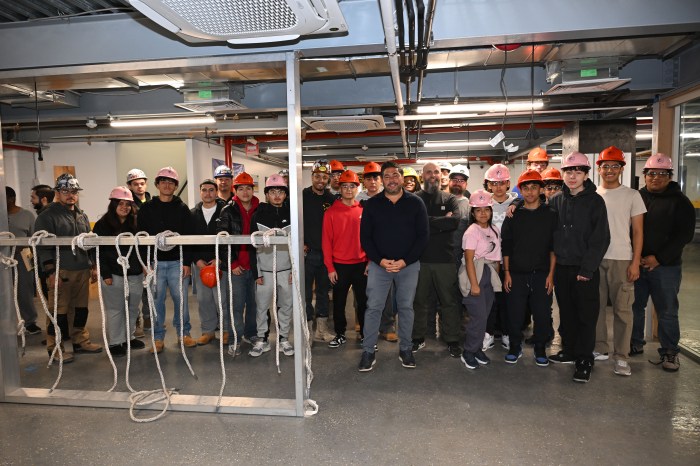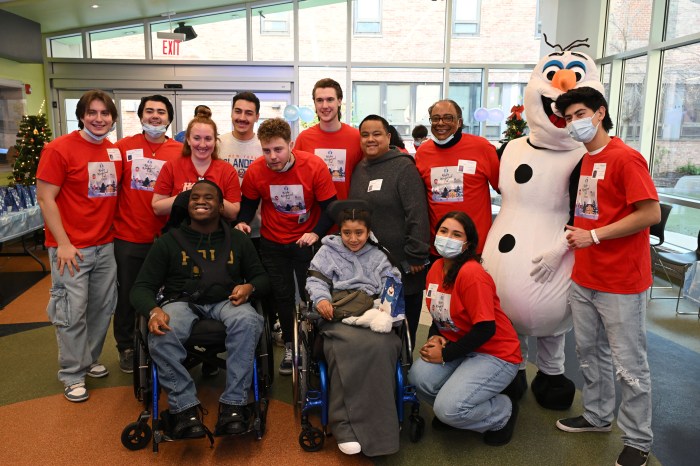To turn around the harsh economic conditions currently engulfing the country, President-elect Obama has proposed a massive investment in rebuilding and strengthening the nation’s infrastructure. To fortify the Jewish community, the Foundation for Jewish Camp (FJC) suggests an investment, as well, in our “spiritual infrastructure.”
“Jewish overnight summer camp offers a tremendous return on investment,” says Jerry Silverman, FJC’s CEO. “It’s solid, wholesome, and grounded. It’s a return to our roots. It’s a community builder. And it’s a proven precursor of adult Jewish identity.”
It is a good time to make such a sound and vital investment in our future by exploring camps for your child or summer job opportunities for your teen in 2009.s And in considering a Jewish overnight summer camp experience, the FJC has compiled some helpful tips:
1) Give your child the opportunity to mature and gain independence in a camp atmosphere that is warm and inviting. Campers develop a strong sense of self, gaining confidence and social skills in a shared, nurturing and healthy environment. Campers mature through learning more about themselves as well as building relationships with others, all interwoven with the common experience of being Jewish. Jewish camp affords Jewish families, regardless of their levels of affiliation, the opportunity to offer their children a chance to experience a Jewish community that is not overwhelming or foreign.
2) Search for the appropriate camp for your child. While the thought of searching through hundreds of camps may seem daunting, online search directories can be very helpful. The FJC’s online camp directory lists over 150 nonprofit Jewish overnight camps in North America that span the denominational and regional spectrum. Search the directory by religious denomination, location, special needs availability or gender. Visit the Find a Camp directory at www.jewishcamp.org
3) Choose a camp that will complement and strengthen the Jewish affiliation and identity of your child. The magic of Jewish camp is rooted in its 24/7 atmosphere, where Jewish values, connection to Israel, and the culture of Judaism are entwined into every aspect of daily activity in ways that make campers feel proud to be Jewish. From Orthodox, Reform and Conservative to Reconstruction’s, Zionist, Humanist and Non-denominational, there is a Jewish camp for every expression of Jewish life. Find the right Jewish experience for your child by visiting the online camp directory at www.jewishcamp.org to search camps by religious denomination.
4) Jewish specialty camps enable your child to hone a specific skill or interest within the context of Jewish values, such as teamwork, fair play and good ruach, spirit. Whether your child is interested in perfecting her jump shot, honing his painting skills, improving his swim stroke, directing a film, or understanding a science theorem, there is a specialty camp that fits his/her needs. Jewish specialty camps offer programs in the following areas: jewelry making, pottery, ceramics, painting, filmmaking, drama, basketball, soccer, tennis, swimming, baseball, astronomy, kinesiology, biology, chemistry and physics. For more information, please visit the Find a Camp directory at www.jewishcamp.org.
5) Jewish camps offer a variety of models to accommodate special needs campers, including mainstreaming, separate programming, and exclusive special needs camps. Regardless of the function level of your child, there is a Jewish camp ready to provide him/her with the summer of a lifetime. Visit www.jewishcamp.org to access a full list of Jewish special needs camps and programs, including those specifically targeted at children with autism, Down Syndrome, and Asperger’s.
6) Check out a camp’s website to learn about camp features, including programs, facilities, and daily schedules. Look for a broad base of activities that both enhance skills that your child wants to improve and emphasize fun. Keep in mind, however, that while websites can provide plenty of useful information, the best way to get a sense of the camp environment is to visit the campgrounds during the summer.
7) Narrow down your options to about four or five camps. Take into account camp size, activity offerings, atmosphere, security, cost and location. Look for a camp that best accommodates both your and your child’s interests. It may be helpful to involve your child in the search to ensure that his/her needs and expectations are met.
8) Talk to veteran families or your child’s friends who have attended the camp before. Ask them about the details of day-to-day life at camp and the “feeling” of the camp atmosphere – things that cannot be gleaned from the website. Keep in mind, however, that just because a camp works for your friend’s child does not mean it is the right camp for your child.
9) Visiting camp during the summer gives you a great sense of the camp culture and environment. If you are planning, try to visit prospective camps the summer before you hope to send you child there. Look for drive-up appeal—not whether it is rustic or modern but how well it is maintained, cleanliness, how the staff greets visitors, and if they know the campers by name when walking through the grounds. If you have missed the summer tours, try to gauge camp culture through the website or conversations with the camp director and other campers and their parents.
10) Equip your camper with the tools they need to have an amazing summer. Be sure to send your child to camp with self-addressed envelops to keep in touch. Consider leaving your child’s cell phone at home so that he/she can grow and mature by being truly independent – and also find out what the camp policy is on cell phones, since many do not allow them at camp. Healthy snacks, family photos, and summer reading books are always good to have in the bunk. When your children finally return home at the end of the summer, you may notice that while their duffle bags are slightly less full from misplaced clothing and eaten goodies, their souls are filled with Jewish pride and their minds and hearts are bursting with memories of friends and fun that will last a lifetime.
The FJC, a public foundation, is the only national organization dedicated to non-profit Jewish resident camps, advancing program and leadership excellence in camps and access to vibrant Jewish experiences for campers. The Foundation helps raise awareness and support for Jewish summer camps, highlighting their successful track record for building powerful Jewish commitment in young Jews, ensuring future Jewish continuity. FJC works with more than 150 camps, 70,000 campers, and 12,000 counselors across North America to further its mission. www.jewishcamp.org.



































